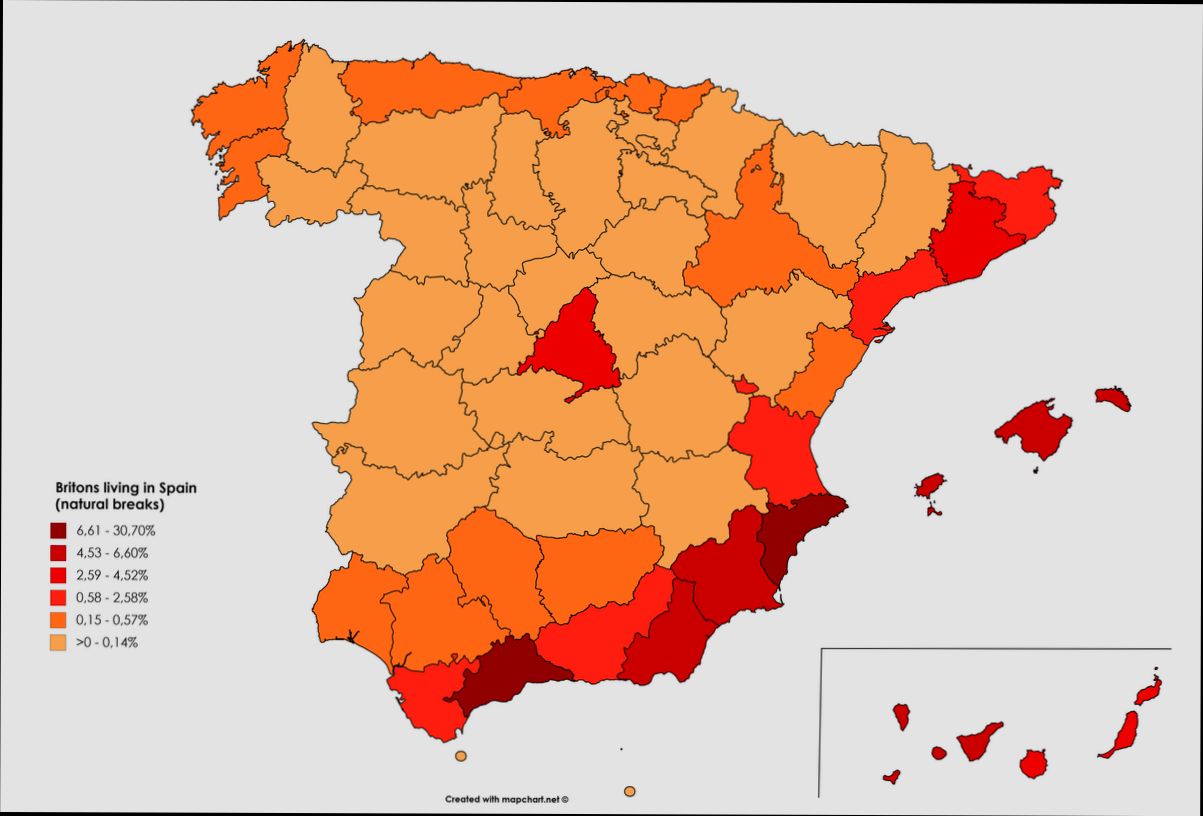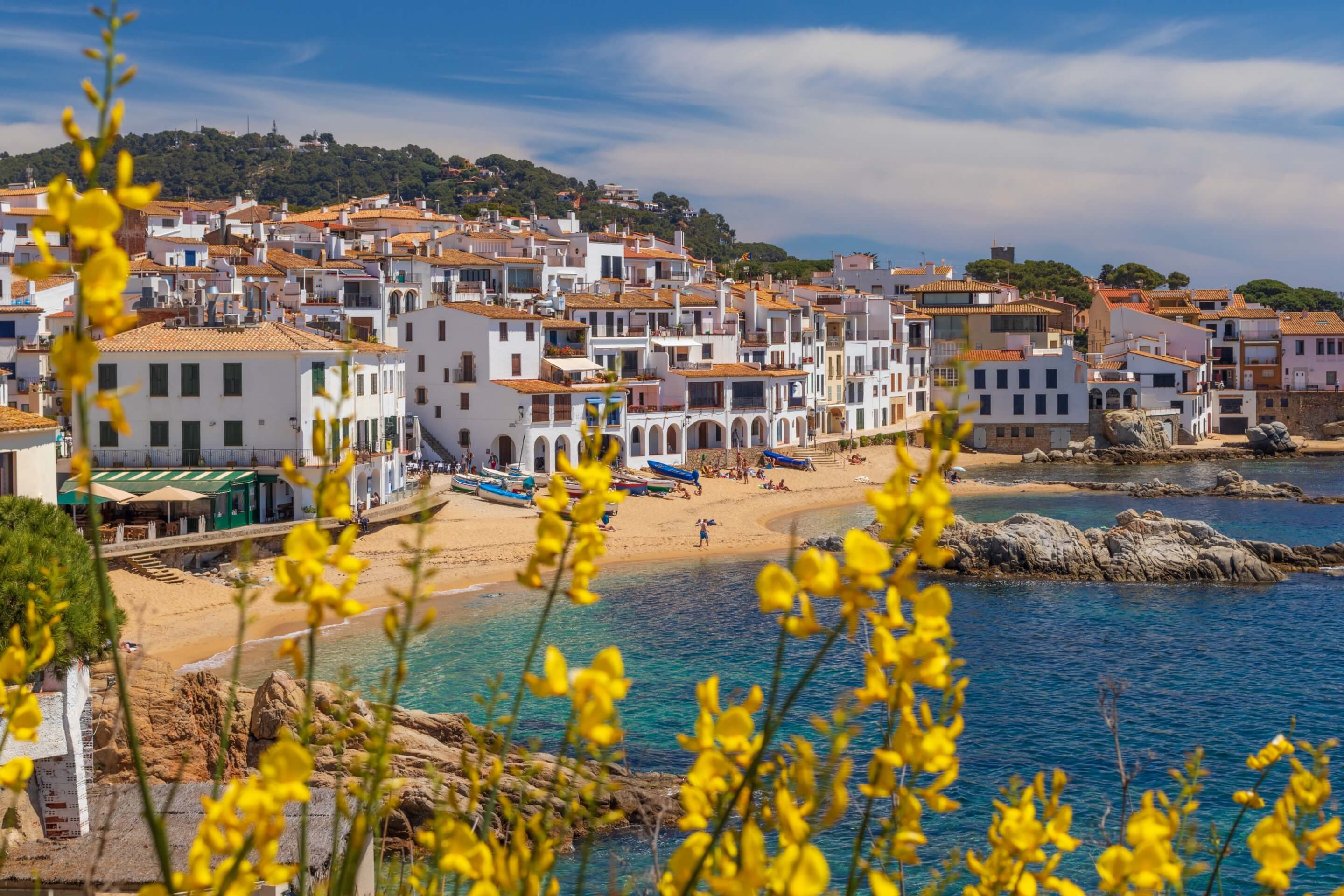- Key Requirements for Brits Moving to Spain
- Current Statistics on British Expats in Spain
- Visa Options for Permanent Residency
- Common Challenges Faced by Brits in Spain
- Financial Considerations for Living in Spain
- Healthcare Access for British Residents
- Cultural Adaptation and Community Integration
- Exploring Popular Regions for Brits in Spain
- Legal Obligations for Permanent Residents
- Tax Implications for UK Citizens Living in Spain
- Educational Opportunities for Families
- Cost of Living Comparison: UK vs Spain
- FAQs About Permanent Residency in Spain
Can Brits live in Spain permanently? It’s a question many are asking, especially with the growing appeal of sun-kissed beaches, vibrant cultures, and laid-back lifestyles. Since Brexit, those perks can feel a bit more complicated for British citizens looking to make Spain their home. Previously, moving to Spain was a breeze; now, there are new rules and regulations that every Brit needs to consider. It’s all about finding the right visa, navigating residency permits, and understanding the health care systems—topics that can be a bit tricky!
For starters, British expats now need to apply for a residency permit if they want to stay longer than 90 days in Spain. This might involve proof of income, health insurance, and other paperwork to show that they won’t become a financial burden on the system. There are specific options like the Non-Lucrative Visa for those who don’t plan to work, or the Golden Visa scheme if you’re investing a substantial sum in property. So whether you’re dreaming of sipping sangria on a terrace in Barcelona or soaking up the sun on a Costa del Sol beach, it’s vital to know what steps you need to take to make that dream a reality.

Understanding Permanent Residency in Spain
If you’re a Brit dreaming of making Spain your permanent home, you’re in the right place! The process for Brits to secure permanent residency in Spain has changed quite a bit after Brexit, but don’t worry, we’ll break it down for you.
What is Permanent Residency?
Permanent residency in Spain allows you to live and work in the country without the need for a visa. It’s kinda like having a key to your dream life under the sun! But how do you get it?
Residency Options for Brits
There are mainly two pathways you can explore:
Non-Lucrative Visa: Perfect if you can support yourself without working; think retirement or remote work! Just show proof of sufficient savings—around €28,000 for the first year. Example: If you’re earning a hefty salary through your online business, this could be a good fit!
Working Visa: If you plan to work in Spain, you’ll need to secure a job and get a work permit before moving. This can be a bit trickier but totally doable!
The Five-Year Rule
Once you’ve lived in Spain for five continuous years, you can apply for permanent residency. Here’s a quick look at what you might need:
| Document Required | Description |
|---|---|
Proof of Residence | Utility bills or rental contracts |
Employment Status | Work contract or proof of self-employment |
Health Coverage | Public healthcare or private insurance |
Investing Your Way In
Another popular route is through the Golden Visa program. If you invest €500,000 or more in real estate in Spain, you can obtain a residency permit. Platforms like Residoora can help you navigate the real estate market. They provide tools to simplify the process of finding investment opportunities.
Statistics to Keep in Mind
As of 2023, approximately 300,000 Brits have registered as residents in Spain post-Brexit, which showcases just how popular this destination remains. So, you’re definitely not alone in your quest!
Final Thoughts
Remember, each case can be a little unique, so it’s always wise to consult with immigration experts or platforms like Residoora for personalized advice. Happy planning!
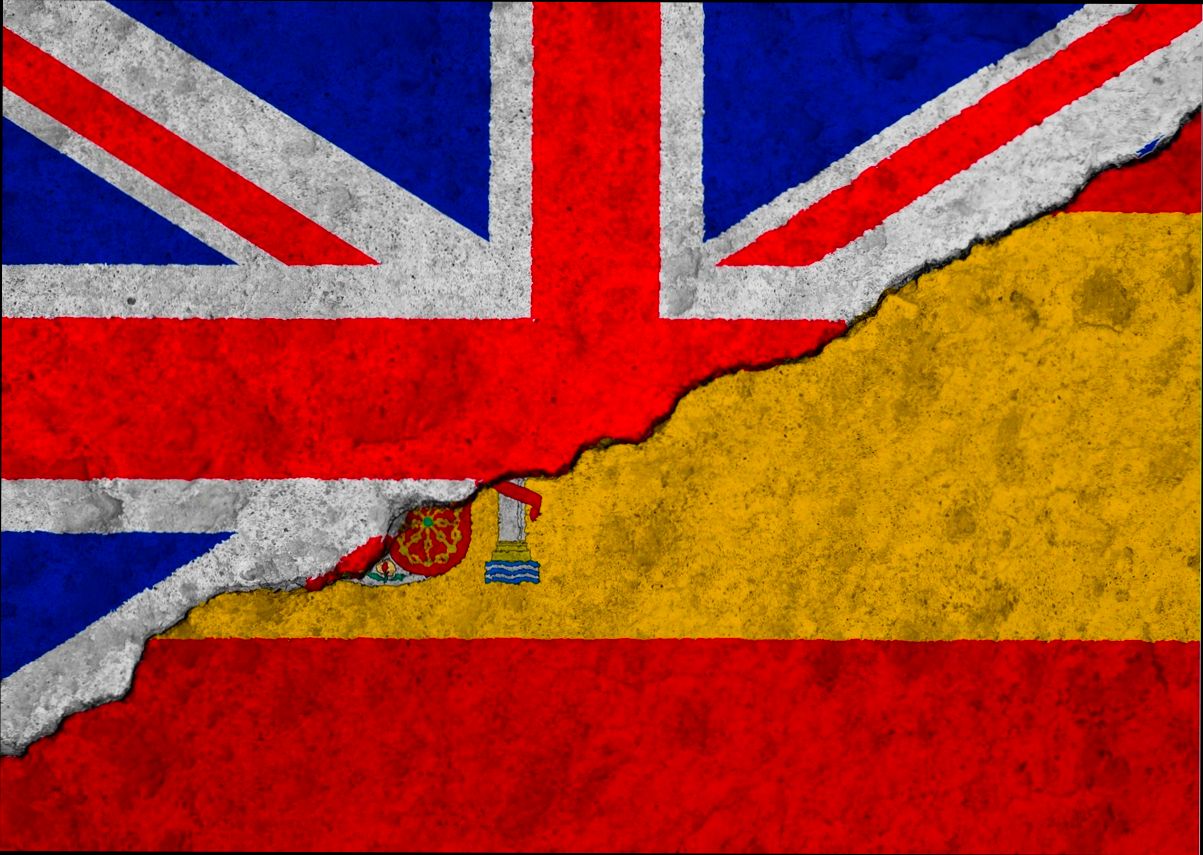
Key Requirements for Brits Moving to Spain
If you’re pondering a permanent move to sunny Spain, there are a few key requirements you should be aware of. Don’t worry; it’s not as scary as it sounds! Let’s break it down.
| Requirement | Details |
|---|---|
Visa | As a Brit post-Brexit, you’ll need a visa to live in Spain long-term. The Spanish Non-Lucrative Visa is popular among retirees, as it doesn’t allow you to work there but does let you enjoy the sun! |
Residency | After getting your visa, apply for residency within 90 days of arriving. Be sure to gather all necessary paperwork like proof of income and health insurance. |
Healthcare | If you’re over 66 and moving to Spain, you might want to look into the Spanish National Health System. Otherwise, private health insurance is a must. Expect to pay around €50 to €200 per month depending on your age and coverage! |
Bank Account | Opening a Spanish bank account is essential for managing day-to-day expenses. Most banks like Banco Santander or BBVA offer accounts specifically for expats. |
Did you know that as of 2022, around 350,000 Britons live in Spain permanently? That figure keeps rising, and many of them are settling down in popular areas like Costa del Sol or Alicante.
Lastly, if you’re looking for a home, platforms like Residoora can help you navigate the real estate scene in Spain. They use AI to analyze property investments, making your search so much easier!
So, there you have it! With the right documents and a bit of preparation, you’ll be soaking up the sun in no time.

Current Statistics on British Expats in Spain
So, you’re curious about Brits living in Spain, huh? Well, you’re not alone! According to recent statistics, over 400,000 British citizens call Spain home, making it one of the most popular destinations for expats.
| Region in Spain | Number of British Expats |
|---|---|
Andalusia | about 130,000 |
Valencia | around 60,000 |
Catalonia | approximately 30,000 |
Madrid | nearly 20,000 |
What’s especially interesting is the concentration of British expats along the Costa del Sol and Costa Blanca, where the warm weather and vibrant lifestyle attract many retirees and remote workers.
Now, if you’re thinking about investing in real estate in Spain, platforms like Residoora can really come in handy. They leverage AI to help you find the best properties and market insights, which makes your journey so much easier!
Recent surveys show that about 65% of Brits living in Spain have settled permanently, quite a leap compared to just a few years ago. The majority of these expats are in the 45-64 age group, enjoying a laid-back lifestyle while sipping sangria.
So, yeah, it’s definitely possible to live in Spain permanently as a Brit, and with the right tools and resources, such as Residoora, you can find your dream home over there in no time!
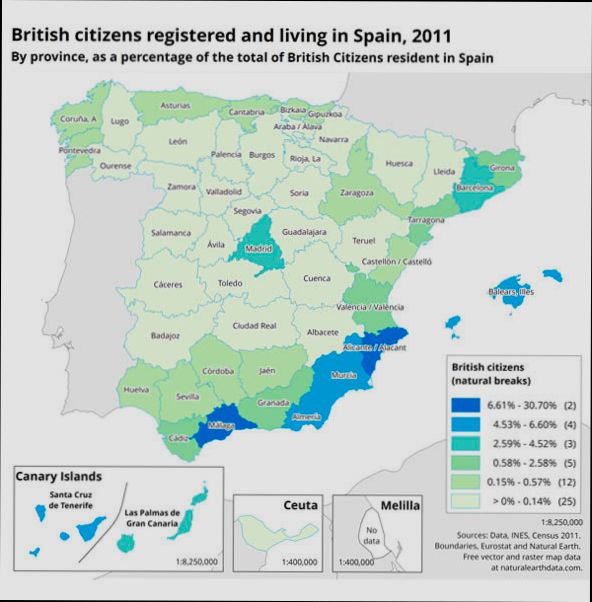
Visa Options for Permanent Residency
If you’re a Brit dreaming of living the Spanish vida loca, understanding your visa options for permanent residency is key. Luckily, once you’ve settled in and gotten your groove on, the process isn’t as difficult as it sounds. Let’s break down the options!
1. Non-Lucrative Visa
This visa is perfect if you’ve got a steady income that comes from outside Spain—think pensions, savings, or passive income. You can live in Spain without working. Just show you have enough funds to support yourself. You’ll need:
Proof of sufficient income (around €2,400/month).
Health insurance that covers you in Spain.
Clear criminal background check.
2. Employment Visa
Got a job offer in Spain? This one’s for you! Your employer will typically handle most of the paperwork. It generally includes:
A valid employment contract.
Proof that you’re qualified for the position.
Once you’ve worked here for five years, you can apply for permanent residency!
3. Golden Visa
Fancy investing in Spanish property? The Golden Visa might be your ticket. You’ll need to invest at least €500,000 in real estate. With that investment, you get immediate residency benefits. You can even bring family members along!
Comparison Table of Visa Options
| Visa Type | Requirements | Permanent Residency Eligibility |
|---|---|---|
Non-Lucrative Visa | Proof of income, health insurance, criminal check | After 5 years |
Employment Visa | Job offer, employment contract | After 5 years |
Golden Visa | €500,000 property investment | After 5 years |
Using AI Platforms for Help
Navigating the ins and outs of residency can be overwhelming. That’s where platforms like Residoora come into play. Residoora can help you find not just properties, but also the best financial options for your investment, making the process smoother and a bit less stressful.
Quick Tip:
Always keep your documents handy, and make sure to apply for residency while your visa is still valid. The sooner you start the process, the better!
So there you have it! No matter which visa option you choose, getting your permanent residency in Spain can be just the beginning of your exciting new chapter. ¡Buena suerte!

Common Challenges Faced by Brits in Spain
Living in Spain sure has its perks, but it also comes with a fair share of challenges. If you’re considering making the move or already living life under the Spanish sun, here are some common hurdles you might face:
Language Barrier
Let’s be real: Spanish can be a tricky language to master. Roughly 23% of Brits in Spain say they struggle to communicate effectively. It can be frustrating when you can’t order your beloved paella or get directions to your favorite beach!
Legal and Bureaucratic Issues
Navigating the Spanish bureaucracy can feel like running a marathon. From applying for a residence permit to sorting out your NIE (Número de Identificación de Extranjero), it’s a process that can take longer than expected. According to recent data, over 30% of expats find the paperwork daunting.
Healthcare Concerns
While Spain has a robust healthcare system, understanding how it works can be tough. You might need to register with the local health authority, and many Brits find out too late that they should have private insurance to cover any gaps. A study found that around 25% of expats are sometimes confused about their healthcare coverage.
Cultural Differences
Every country has its quirks, right? Sometimes it’s the little things, like the relaxed attitude towards time or the way Spaniards socialize late into the night. Embracing these cultural differences is key, but many Brit expats admit it takes time to adjust.
Finding Accommodation
This can be tricky, particularly in hotspots like Barcelona or Málaga. Prices can vary wildly. Here’s a quick look at average monthly rents:
| City | 1-Bedroom Apartment | 3-Bedroom Apartment |
|---|---|---|
Madrid | €1,200 | €2,500 |
Barcelona | €1,300 | €2,800 |
Valencia | €800 | €1,500 |
Online platforms like Residoora can help you find properties tailored to your needs, making it easier to navigate the housing market.
Integration and Community
Feeling isolated is a common issue, especially if you don’t speak the language. It can be hard to break into social circles. About 40% of Brits in Spain report struggling to find a community. Joining local clubs or expat groups can be a game-changer!
In conclusion, while the transition to a permanent life in Spain has its bumps, being aware of these challenges can help you prepare better. Taking the plunge is always easier with a plan, right?
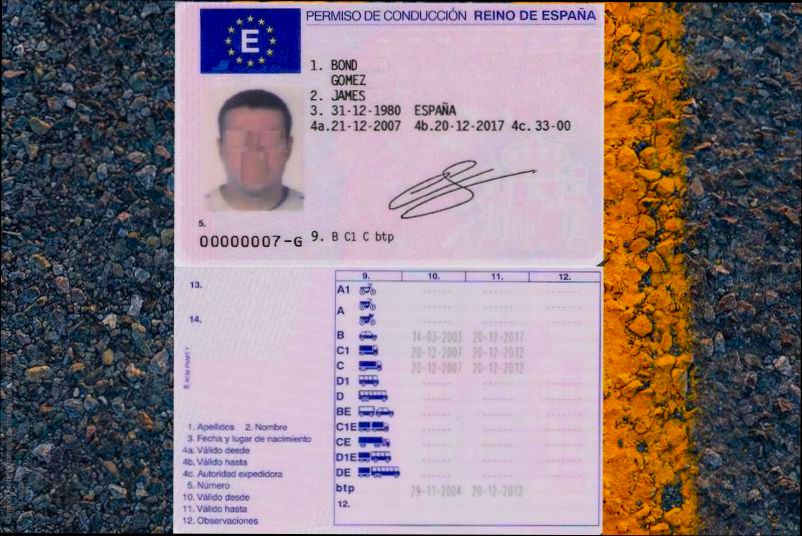
Financial Considerations for Living in Spain
If you’re dreaming about making the sunny shores of Spain your permanent home, you need to get a handle on the financial side of things. It’s not all tapas and siestas; budgeting wisely can make all the difference!
Cost of Living
The cost of living in Spain varies widely, depending on where you choose to settle down. For example:
| City | Monthly Expenses (Single Person) |
|---|---|
Barcelona | €1,000 - €1,500 |
Madrid | €1,200 - €1,700 |
Valencia | €800 - €1,200 |
Seville | €700 - €1,100 |
As you can see, cities like Valencia and Seville tend to be more affordable, perfect if you’re looking to stretch your euros!
Taxes
Before packing your bags, don’t forget about taxes! If you’re a resident, you’ll pay taxes on your worldwide income. Income tax in Spain is progressive, ranging from 19% to 47%. Sounds hefty, right? But it’s a sliding scale based on what you earn.
For example, if you’re earning around €30,000 per year, you could expect to pay roughly €4,500 in income tax. It’s smart to consult a tax advisor who understands both UK and Spanish tax systems to avoid double taxation—there’s nothing fun about that surprise!
Housing Costs
Finding a place to live is one of your biggest expenses. Whether you’re renting or buying, here’s what to expect:
| Type of Accommodation | Average Monthly Cost (Approx.) |
|---|---|
1-Bedroom Apartment in City Center | €800 - €1,200 |
1-Bedroom Apartment Outside City Center | €600 - €900 |
Buying Property (Per m²) | €1,500 - €3,200 |
Platforms like Residoora can help you find the right investment property and navigate the real estate market, making the process way easier.
Healthcare Costs
Spain offers a fantastic public healthcare system, and as a resident, you can access it. If you’re moving permanently, you might also want private health insurance, which typically costs around €50-€150 a month depending on your age and coverage level.
Just think about it—spending less than €200 monthly for comprehensive healthcare is pretty sweet, especially if you’re used to the UK’s NHS system!
Utilities and Other Costs
Don’t overlook utilities! These can run you about €100-€200 monthly depending on your usage. Internet will likely cost you around €30-€60 per month.
Overall, budgeting for Spain involves planning for not just day-to-day expenses but also factoring in taxes and health costs. Stay informed, and you’ll be well on your way to living your best life in the sun!

Healthcare Access for British Residents
If you’re thinking about making Spain your permanent home, you’re probably wondering how the healthcare system works for British residents. Well, let’s dive into it!
First off, if you’re a British national residing in Spain for more than three months, you’ll need to ensure that you have healthcare coverage. After Brexit, the rules changed a bit, and it’s crucial to be informed.
Healthcare Options
The Spanish healthcare system is mostly public, and as a resident, you might be eligible for it. However, this depends on whether you’re working or if you have a pension. Let’s break it down:
| Eligibility | Healthcare Access |
|---|---|
Working in Spain | Access to public healthcare via social security contributions |
Pensioners | Eligible for public healthcare if you’ve registered with the S1 form |
Private Health Insurance | Available for all residents, good option for quicker access |
For those not eligible for public healthcare, private health insurance is a popular choice. In Spain, private insurance is often affordable, and the rates can range from €40 to €150 per month, depending on your age and health needs. Platforms like Residoora can help you find the perfect property that accommodates your lifestyle, including proximity to healthcare facilities.
Registering for Healthcare
Got your residency sorted? Next, register for a health card (Tarjeta Sanitaria) at your local health center. Bring your residency certificate, ID, and proof of your healthcare status (like the S1). This gives you access to doctor visits, specialists, and emergency services without breaking the bank!
Urgent and Emergency Care
If things go south and you need urgent care, you can visit any health center or hospital. Emergencies are typically treated first, regardless of your insurance type. You can expect a high standard of care, but be prepared for a wait, especially in busier cities.
Final Thoughts
Overall, healthcare in Spain is generally top-notch, but make sure you’ve got your coverage squared away! Whether that’s going public through contributions or opting for private insurance, it’s all about taking care of yourself. After all, your health is your best investment when living the sunny Spanish dream!

Cultural Adaptation and Community Integration
So, you’ve packed your bags, set foot in sunny Spain, and are ready for a fresh start. But wait, how do you actually fit into this vibrant culture? Here’s the scoop.
Language: The Key to Connection
First off, Spanish is essential. I know, it can be a challenge, but making an effort goes a long way. A whopping 63% of Brits who moved to Spain say that learning the language has enhanced their experience. Even picking up a few phrases can help you connect with locals and make friendships. Check out this quick starter list:
| English | Spanish |
|---|---|
Hello | Hola |
Thank you | Gracias |
Goodbye | Adiós |
Engage with Local Culture
Now, let’s talk about food, fiestas, and fun! Engage in local events and festivals - they are a fantastic way to dive into the culture. Did you know that Spain hosts over 10,000 festivals each year? From La Tomatina to Semana Santa, there’s always something exciting happening! You might even make a few friends while chucking tomatoes!
Finding Your Tribe
Making pals isn’t always easy, but joining clubs or classes can help. Think about enrolling in a cooking class or joining a social group where you can share interests with both expats and locals. Online platforms like Residoora can help you find community groups tailored to Brits living in Spain. Nothing beats networking over tapas!
Integrating into Community Life
Community integration also means getting involved in local activities. Volunteer opportunities abound, and it’s a fantastic way to meet people while giving back. In fact, 25% of expats reported feeling more integrated after volunteering.
Wrap it Up!
Living in Spain is not just about sunshine and siestas. It’s about immersing yourself in a new culture. With a little effort, embracing the local vibe and making it your own can turn your new life into an unforgettable adventure.

Exploring Popular Regions for Brits in Spain
If you’re considering a permanent move to Spain, you’ll want to know where most Brits are flocking to. Spoiler alert: there are some hot spots that are absolute favorites!
Top Locations
| Region | Why People Love It | Average Property Prices |
|---|---|---|
Costa del Sol | Sunny beaches, expat community, vibrant nightlife. | €2,800/m² |
Valencia | Great food, beautiful architecture, and less touristy than Barcelona. | €1,700/m² |
Alicante | Affordable living, stunning coastline, and good climate. | €1,500/m² |
Barcelona | Cultural hub, diverse neighborhoods, and fantastic dining options. | €4,000/m² |
Which One Is Right for You?
It really boils down to what you’re looking for. Want vibrant nightlife and high energy? Go for Barcelona or Costa del Sol. If you prefer a laid-back vibe, maybe Alicante or Valencia is your cup of tea.
Community and Connection
Over 400,000 Brits call Spain home, and many are concentrated in these popular areas. There’s a strong British community in places like Torrevieja and Marbella, where you can easily find support and social groups.
Real Estate Tools
Now, if you’re on the hunt for a new pad, tools like Residoora can be super helpful. This nifty AI platform helps investors find properties that fit their budgets and needs, making the search a breeze. Another great option is Residoora, which also offers tailored real estate solutions, connecting you to the right investments in Spain.
Wrap Up
So, whether you’re dreaming of sun-soaked days on the Costa del Sol or the vibrant streets of Barcelona, Spain has a place for you. Happy house hunting!

Legal Obligations for Permanent Residents
Once you’re set on living the sunny life in Spain, there are a few legal obligations you’ll need to keep in mind. Let’s break it down!
1. Registering with the Authorities
If you plan to stay longer than three months, you must apply for a residence certificate. This involves:
Getting a NIE (Número de Identificación de Extranjero): This is your foreigner identification number and a must for anything from signing a lease to opening a bank account.
Registering with the local town hall (Ayuntamiento): Get a “certificado de empadronamiento” to prove you live in Spain.
2. Healthcare Coverage
As a permanent resident, you’ll need to ensure you’re covered by the Spanish health system. You have two options:
| Option | Details |
|---|---|
Public Health Care | If you’re employed, you’ll be eligible for public healthcare. Just make sure your employer signs you up! |
Private Health Insurance | If you’re self-employed or don’t qualify for public health coverage, consider getting private health insurance. Look into companies like Sanitas or AXA. |
3. Taxes, Taxes, Taxes!
Living in Spain means you’ll have to pay taxes like any local. If you’re a permanent resident, you’ll be subject to:
Income Tax: If you reside in Spain for over 183 days a year, you’ll be considered a tax resident and need to pay Spanish income tax.
Wealth Tax: If your net worth exceeds €700,000, you’ll face this tax too! Get those financial plans sorted.
4. Keep Up with Your Legal Status
Your residence card is valid for five years. After that, you’ll need to renew it. Just keep an eye on the expiration date—there’s no need to stress, but it’s good to be proactive!
5. Using AI Platforms for Property Investments
If you’re looking to invest in property in Spain, tools like Residoora can be super handy. They provide you the insights, market stats, and investment analysis tools to make informed decisions. Seriously, it’s like having your own assistant at your fingertips!
There you go! Staying on top of these legal obligations will help ensure that your permanent stay in Spain is smooth sailing. Enjoy the sun!

Tax Implications for UK Citizens Living in Spain
Alright, let’s break down what taxes you need to think about if you’re a Brit calling Spain your home. It’s not as scary as it sounds, but it can be a bit complicated. So, grab a coffee, and let’s dive in!
Tax Residency Status
First off, if you spend more than 183 days in Spain during a calendar year, you’re considered a tax resident. This means you’ll need to pay taxes on your worldwide income. If you don’t hit that mark, you’ll only be taxed on income generated within Spain.
Income Tax Rates
Spain’s income tax rates can be a bit of a shocker compared to what you might be used to in the UK. Here’s a quick overview of the 2023 income tax rates:
| Income Bracket (€) | Tax Rate |
|---|---|
0 - 12,450 | 19% |
12,451 - 20,200 | 24% |
20,201 - 35,200 | 30% |
35,201 - 60,000 | 37% |
Over 60,000 | 47% |
As you can see, once you hit certain thresholds, the tax rates climb quite a bit. So, budgeting for this is crucial!
Capital Gains Tax
If you’re thinking of selling a property, keep in mind the capital gains tax (CGT) applies and is levied at around 19% to 26%, depending on the amount of profit you’ve made. Also, if you’re planning to reinvest in another property, you might be able to defer this tax. This is where platforms like Residoora can help you find a suitable property and manage your investments effectively.
Double Taxation Agreement
Lucky for you, the UK and Spain have a double taxation agreement! This means you won’t get taxed twice on the same income, but you’ll need to declare your income in both countries to benefit from this. Make sure to keep your paperwork in order—Spaniards love their documents!
Inheritance Taxes
Inheritance tax is another thing to consider. Spain has different rates depending on the region. For instance, in Andalucía, the tax rates can range from 7.65% to 34%. It’s crucial to factor this in if you plan to pass down your assets.
Seeking Help
Looking for guidance? Consider speaking to a tax advisor who specializes in expatriate matters. Platforms like Residoora can also connect you with local experts to help navigate these waters.
So, there you have it! Taxes can be daunting, but with the right info and a bit of planning, you can make living in Spain as a Brit way smoother!

Educational Opportunities for Families
If you’re thinking about moving to Spain, one of the top concerns for families is usually the education system. Let’s dive right into what you can expect when it comes to schooling your kids in sunny Spain!
Types of Schools Available
In Spain, you’ll find several types of schools to choose from:
| School Type | Description |
|---|---|
Public Schools | Funded by the government, these schools are typically free for residents. They follow the Spanish curriculum, and classes are taught in Spanish. |
Private Schools | These schools charge tuition but often provide smaller class sizes and more personalized attention. They can follow the Spanish curriculum or an international one. |
Bilingual Schools | A mix of Spanish and English instruction, great for expat families wanting their kids to have a fluent command of both languages. |
International Schools | These schools follow curricula from different countries (like the British or American system) and are perfect if you’re looking for a familiar educational framework. |
Did you know that over 30% of British families in Spain opt for international or bilingual schools? It’s a popular choice, especially in regions with large expat communities!
Benefits of Spanish Education
Diverse Language Skills: Spanish schools help your kids become bilingual, which is an awesome skill in today’s global job market!
Rich Cultural Experience: Your children will be immersed in Spanish culture, which can really broaden their horizons.
Inclusive Environment: Many schools have programs tailored for non-Spanish speakers, helping your kids settle in without feeling lost.
Getting Started
So, how do you get your little ones enrolled? The process is generally straightforward. You’ll need to:
Choose the type of school you want.
Visit the schools and chat with the staff to get a feel for the environment.
Gather the necessary documentation (like residency permits and previous school records).
Apply and wait for the confirmation!
Platforms like Residoora are super helpful in finding suitable neighborhoods with good schools nearby. They can connect you with local real estate agents who know the area and can point you in the right direction.
Conclusion
Overall, Spain offers a variety of educational options to suit the needs of your family. Whether opting for a public school or an international institution, your kids will have access to quality education in a vibrant and enriching environment. Happy schooling!

Cost of Living Comparison: UK vs Spain
When it comes to swapping the UK for sunny Spain, one of the biggest considerations is the cost of living. Are you ready for the numbers?
Monthly Expenses Breakdown
| Expense | UK Average (£) | Spain Average (€) |
|---|---|---|
Rent (1-bedroom in city center) | £1,200 | €900 |
Groceries (per month) | £300 | €250 |
Utilities (electricity, water, gas) | £150 | €120 |
Public Transport Ticket | £2.50 | €1.50 |
Eating Out (inexpensive restaurant) | £15 | €12 |
Looking at this table, it’s clear that your pounds can stretch a bit further in Spain. Typical rent is significantly lower—almost 25% cheaper on average. For food, you’ll find your weekly grocery shop could save you around £50. And who doesn’t love cheaper tapas?
Healthcare Costs
Healthcare is another essential factor. In the UK, you’ve got the NHS, so you likely don’t pay for primary care. In Spain, if you’re a resident, public health services are available, but there might be waiting times. Private healthcare in Spain is quite affordable too, costing around €50-€100 per month for a decent plan compared to private insurance in the UK which can be upwards of £100 monthly.
Social Life & Leisure
What about enjoying a night out? In Spain, drinks and dining are typically cheaper. You could grab a beer for around €2 instead of the £5 you’d shell out in London. Plus, social events often don’t carry a hefty price tag. So, you could even save enough for a weekend getaway to explore more of Europe.
Final Thoughts
Overall, the cost of living in Spain tends to be lower than in the UK, giving you room to relax and enjoy life. If you’re thinking about making a permanent move, platforms like Residoora can offer great insights into real estate investing in Spain, helping you find that perfect sun-soaked piazza to call home.

FAQs About Permanent Residency in Spain
Can I Stay in Spain Permanently After Brexit?
Absolutely! If you’re a Brit looking to settle down in sunny Spain, you can apply for permanent residency. After five years of living in Spain, you can get your Permanent Residency status, which means you can live and work here without any hassle. Just make sure to keep your paperwork in order!
What Are the Requirements for Permanent Residency?
Here’s a quick checklist of what you need:
Proof of living in Spain for at least five years.
Health insurance covering you in Spain.
Financial means to support yourself.
A valid UK passport.
Do I Need to Speak Spanish?
While speaking Spanish isn’t a strict requirement, it sure helps! It can make your day-to-day life much easier and shows that you’re making an effort to integrate into the local culture. Plus, the more Spanish you know, the better your chances of connecting with locals!
How Long Does the Application Process Take?
The application process can vary, but generally, you can expect it to take a few months—anywhere from 4 to 6 months is common. Patience is key!
What Happens After I Get Permanent Residency?
Once you’ve got your permanent residency, you’re free to:
Live and work in Spain indefinitely.
Travel within the Schengen Area for up to 90 days.
Enjoy the great Mediterranean lifestyle!
Should I Use Any Platforms to Help with the Process?
Definitely! Platforms like Residoora and Residoora can provide valuable resources for real estate investors or anyone looking to navigate the residency process. They offer insights into property laws, investment opportunities, and can even connect you with local experts.
What If I Want to Move Back to the UK?
No worries! If you ever decide to return to the UK, your permanent residency status can still be preserved for a time. But just note that if you stay out of Spain for more than two years, you might lose it.
How Popular is Permanent Residency in Spain?
You’re not alone in this! According to recent statistics, over 400,000 British nationals lived in Spain before Brexit. That number hasn’t dropped significantly, meaning a lot of Brits are still making Spain their home.
| Time Spent in Spain | Residency Type |
|---|---|
Under 5 years | Temporary Residency |
5 years and beyond | Permanent Residency |
Outside Spain for over 2 years | Possible Loss of Residency |
In summary, becoming a permanent resident in Spain is quite achievable for Brits, especially if you’re organized and well-prepared. Happy planning!
